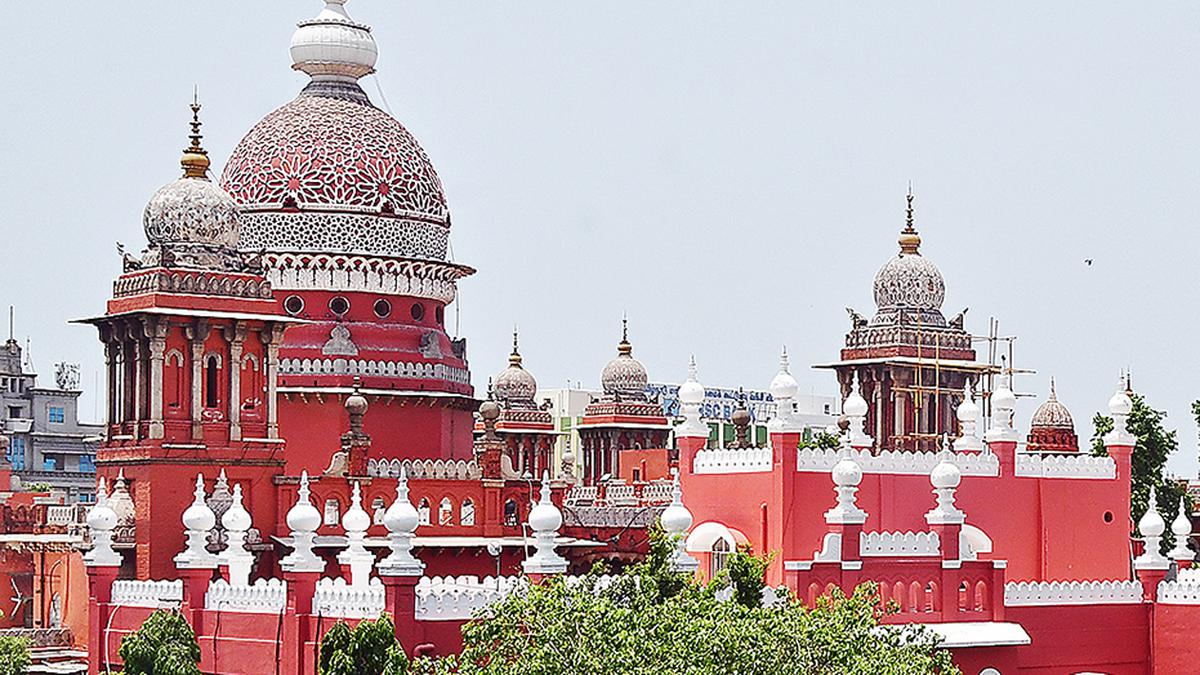
Tamil Nadu govt. expresses intent to withdraw appeals filed against Stalin, Duraimurugan in 2019
The Hindu
Govt. withdraws appeals against CM Stalin, Duraimurugan; HC to decide on impleading petition on Sep 26. AIADMK govt. had filed appeals in 2019 against quashing of DVAC inquiry into alleged irregularities in 2008-10 Secretariat complex construction. A-G said 3rd party had no locus standi, SC judgment cited.
The State government on Tuesday informed the Madras High Court of its decision to withdraw two writ appeals it had filed in 2019 against incumbent Chief Minister M.K. Stalin and Water Resources Minister Duraimurugan. The appeals had been filed during the AIADMK regime against the quashing of a DVAC inquiry into alleged irregularities in the construction of a new Assembly-cum-Secretariat complex between 2008 and 2010.
Appearing before a Division Bench of Justices D. Krishnakumar and P.B. Balaji, Advocate-General R. Shunmugasundaram said the Government Pleader had sent a letter to Registrar (Judicial) of the High Court as early as on July 13, 2023 with a request to list the appeals for withdrawal. Subsequently, on July 24, 2023, former AIADMK MP J. Jayavardhan filed an impleading petition due to a political motive, he said.
The A-G said the issue was between the State and the court, and therefore, a third party had no locus standi to get impleaded in the appeals. He urged the court to let the State government withdraw the appeal. Senior Counsel P. Wilson, representing Mr. Stalin and Mr. Duraimurugan, also made a similar request and cited a Supreme Court judgment to contend that even the courts could not prevent a litigant from withdrawing an appeal.
After a preliminary hearing, the Division Bench decided to take a call on the impleading petition on September 26. When the AIADMK returned to power in 2011, pursuant to a five-year DMK regime, it constituted a Commission of Inquiry, headed by Madras High Court retired judge S. Thangaraj, to probe alleged irregularities in the construction of the Secretariat complex, now housing the Government Multi Super Speciality Hospital, at Omandurar Estate in Chennai.
After his resignation, the government appointed retired judge R. Regupathy on December 2, 2011 as the head of the Commission of Inquiry. In 2014, former Chief Minister M. Karunanidhi, Mr. Stalin and Mr. Duraimurugan filed individual writ petitions challenging the constitution of the commission and obtained interim orders. However, on August 3, 2018, Justice S.M. Subramaniam directed the government to suspend the commission since it had not made any headway.
Subsequently, Karunanidhi died on August 7, 2018, and the then government, led by Edappadi K. Palaniswami, issued a Government Order on September 24, 2018 for a DVAC inquiry into the alleged irregularities. Mr. Stalin and Mr. Duraimurugan challenged the G.O. since they had served as Deputy Chief Minister and Public Works Minister, respectively, during the construction of the Secretariat.
Justice Pushpa Sathyanarayana (since retired) of the High Court allowed their writ petition and quashed the G.O. on December 13, 2018, leading to the filing of the present writ appeals by the State in 2019.

“Writing, in general, is a very solitary process,” says Yauvanika Chopra, Associate Director at The New India Foundation (NIF), which, earlier this year, announced the 12th edition of its NIF Book Fellowships for research and scholarship about Indian history after Independence. While authors, in general, are built for it, it can still get very lonely, says Chopra, pointing out that the fellowship’s community support is as valuable as the monetary benefits it offers. “There is a solid community of NIF fellows, trustees, language experts, jury members, all of whom are incredibly competent,” she says. “They really help make authors feel supported from manuscript to publication, so you never feel like you’re struggling through isolation.”

Several principals of government and private schools in Delhi on Tuesday said the Directorate of Education (DoE) circular from a day earlier, directing schools to conduct classes in ‘hybrid’ mode, had caused confusion regarding day-to-day operations as they did not know how many students would return to school from Wednesday and how would teachers instruct in two modes — online and in person — at once. The DoE circular on Monday had also stated that the option to “exercise online mode of education, wherever available, shall vest with the students and their guardians”. Several schoolteachers also expressed confusion regarding the DoE order. A government schoolteacher said he was unsure of how to cope with the resumption of physical classes, given that the order directing government offices to ensure that 50% of the employees work from home is still in place. On Monday, the Commission for Air Quality Management in the National Capital Region and Adjoining Areas (CAQM) had, on the orders of the Supreme Court, directed schools in Delhi-NCR to shift classes to the hybrid mode, following which the DoE had issued the circular. The court had urged the Centre’s pollution watchdog to consider restarting physical classes due to many students missing out on the mid-day meals and lacking the necessary means to attend classes online. The CAQM had, on November 20, asked schools in Delhi-NCR to shift to the online mode of teaching.









